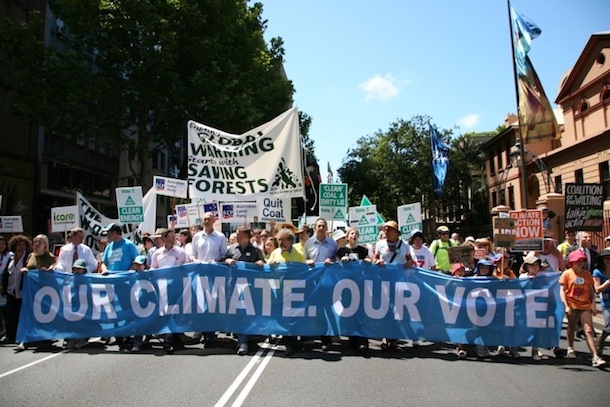NEW YORK CITY, U.S.A. Climate change is becoming one of the most pressing issues of our time, with the International Energy Association warning that climate change will become irreversible if world leaders do not take bold action in changing fossil fuel infrastructure. At the forefront of the movement to change such infrastructure is Bill McKibben, one of the leading figures in the climate justice movement in the United States. He has played an important role in this movement from writing books to organizing national tours to protest the Keystone XL Pipeline and even spending two days in jail following an act of civil disobedience against the pipeline in front of the White House.
ROOSTERGNN had the opportunity to talk to Bill McKibben, author of many books on climate change such as The End of Nature and the founder of international environmental organizationon 350.org, about the politics of climate change and the climate justice movement.
How did we get to the environmental disaster we are in today and how do we fix it?
Bill McKibben: Well, we got here by burning huge quantities of coal and gas and oil. We’ve basically taken millions of years worth of biology (all those dinosaurs and plankton) that were safely stored away underground, and then burned it in a matter of decades and then we ignored the scientists who showed us that it was devastatingly dangerous. We fix this problem by switching off fossil fuel now, which is hard and expensive, though nowhere near as hard and expensive as not doing it. A key first step is to put a price on carbon that reflects the damage it does in the atmosphere–a price that, since we’ve delayed so long, has to be pretty stiff to get the job done.
Why is the Keystone XL Pipeline such a critical issue?
It is a critical issue because the tar sands are a huge potential source of carbon, and because for once the president of the US could stop a project all by himself, without asking congress. So it was a plausible fight–that’s why so many people have poured into it.
What do you make of the newly released State Department report that concludes that the pipeline would not substantially worsen carbon pollution and what effect does it have on the movement?
Not much effect. This has always been a decision for the president to make. Obviously, building a big pipeline to the tar sands will make the problem worse. We’ll see if he has the nerve to stand up to the fossil fuel industry.
Are we having the wrong debate in the media, debating whether climate change is real or not?
Because it’s not a matter of opinion, like ‘should we raise the minimum wage?’ It’s science, not political science. There’s no use trying to outdebate physics.
With the increasing amount of fossil fuel divestment campaigns at universities across the country, what is the role of students in this movement and why was divestment chosen as a strategy?
It is at the forefront (as they were yesterday in DC when 398 were arrested protesting Keystone). That’s because unlike, say, me who will be dead before too much longer, young people will be hitting the prime of their lives as climate chaos grows out of control. They’re literally fighting for their future, and deserve to have the loudest voice
In terms of divestment, we play defense a lot of the time, against pipelines and coalmines and such. It’s nice to be on the offensive, to put these guys back on their heels a little
Lastly, is the environmental consumerist movement, which advocates for individual responsibility such as recycling, at odds with the politics of the climate justice movement you are a leader of?
Not at odds–we should do what we can in our lives. But in the end this is a structural, systemic problem demanding a structural, systemic solution.
***
Bill McKibben is an author of many books on climate change such as The End of Nature and is the founder of 350.org, an international environmental organization. Foreign Policy added him to their list of the world’s 100 most important global thinkers and the Boston Globe called him “the nation’s leading environmentalist.” He is also a fellow of the American Academy of the Arts and Sciences and holds honorary degrees from 18 colleges and universities.

